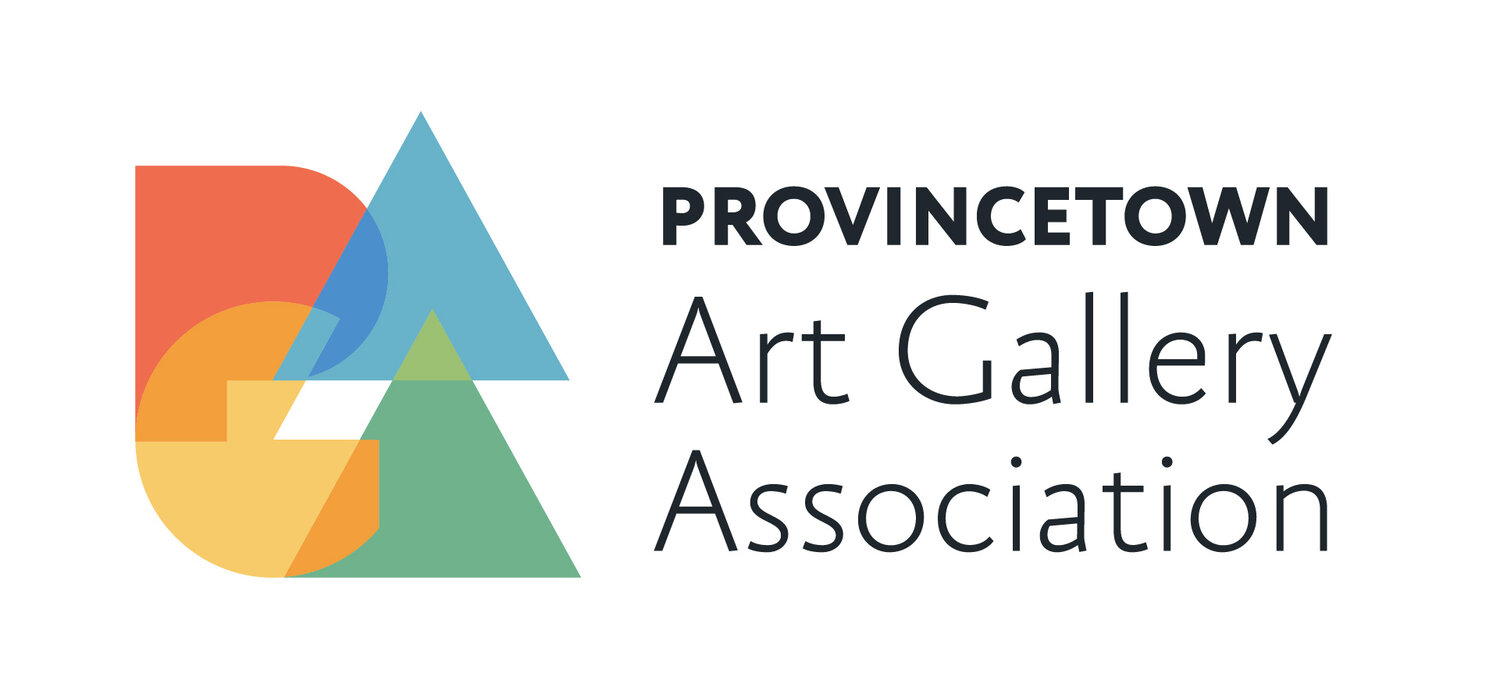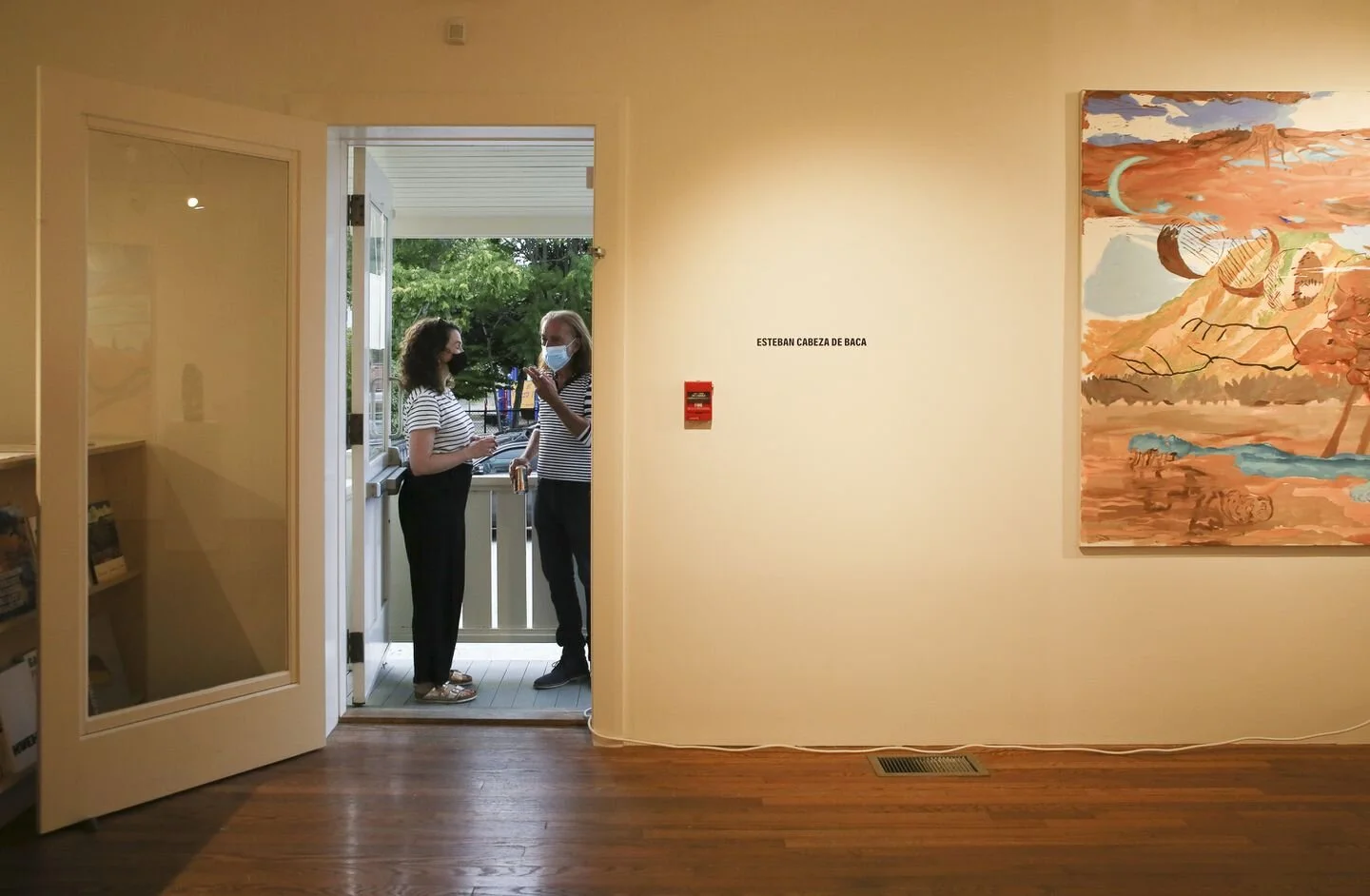Provincetown: Where gallerists know how to behave in a crisis
By Cate McQuaid Globe Correspondent, Updated August 5, 2021, 11:31 a.m.
Source: Boston Globe
Visitors strolled late last month at Gaa Gallery, which hosted a reception with masking and attendance restrictions. CHRISTIANA BOTIC FOR THE BOSTON GLOBE
PROVINCETOWN — The COVID-19 outbreak that started in Provincetown last month put a chill on a booming summer art season. At Albert Merola Gallery, the first of five solo shows opened July 30. The gallery canceled opening receptions for all of them.
“We decided the most responsible thing to do to keep the numbers down in our community was to not be inviting people to gather in a little space,” said gallery co-owner James Balla. “There’s too much unknown — how virulent the virus is, or exactly how contagious it is to people who are vaccinated.”
Around 900 cases on Cape Cod resulted from the Provincetown cluster, driven by the rapid-spreading Delta variant. Nobody died, and only seven people were hospitalized.
US Centers for Disease Control and Prevention analyzed 469 Massachusetts residents who were infected and found about three-quarters had been vaccinated. An indoor mask mandate went into place on July 25.
Provincetown already had a high vaccination rate, and COVID-wary residents leaped into action. The cluster has been largely contained: The percentage of positive tests, which hit 15.1 percent on July 15, dropped to below 5 percent earlier this past week.
Visitors were required to wear masks when entering Gaa Gallery late last month. CHRISTIANA BOTIC FOR THE BOSTON GLOBE
Foot traffic along Commercial Street dropped, too.
“It’s dead quiet,” said Debbie Nadolney, owner, director, and curator of Art Market Provincetown, last week.
Some galleries continue to hold receptions, albeit with restrictions. Gaa Gallery had one last weekend, and staged the artist talk outside. Rice Polak Gallery had one on July 23, before the town’s initial mask advisory became a mandate. They moved the bar outside and insisted on masks inside.
“There were a few days where we were watching cases go up and having to police ourselves,” said owner Marla Rice. “Once the town said wear a mask, it got better. We were all on the same page.”
Bare-faced visitors took in the artwork at Rice Polak Gallery on July 10, before news arrived of the Provincetown COVID-19 cluster. CHRISTIANA BOTIC FOR THE BOSTON GLOBE
Before the outbreak, Commercial Street was swarming. “May, June, and July were the strongest months I’ve had in the last 30 years,” Rice said.
Art galleries have been nimble throughout the pandemic. They didn’t suffer the same blackout, soul-crushing blow COVID-19 dealt the performing arts. Massachusetts reopened retail in June 2020, just in time for Provincetown galleries’ high season.
It was different, of course. The Friday Night Gallery Stroll, a weekly social event, went virtual. Opening receptions, if they happened at all, took place outside, and no wine was served. Alden Gallery had a bouncer’s rope outside and allowed only two people in the gallery at a time.
“We had about 25 percent of our usual foot traffic,” owner Howard Karren said of the summer 2020 season.
But that didn’t affect sales. “Sales were great. It was one of our five best years in business,” Karren said.
Galleries that hadn’t been selling art online started to. William-Scott Gallery went online for the first time, and saw no drop in sales, according to director Brian Galloway.
Rice said 2020 was her gallery’s best year ever. “People were more comfortable buying online. They were home. They had money.”
Many art collectors had fled cities, moving to second homes in less densely populated areas — like the outer Cape.
Karren observed a pandemic-era shift in buying habits.
“I think there was a little more conservative judgment in what they bought,” he said. “The choices were safer.”
Provincetown has a long history as an art colony, but until the pandemic, art dealers didn’t often work together. The summer season is a sprint, with long hours and quick exhibition turnovers. There hasn’t been time to collaborate. COVID spurred them to reach out to each other. A group of about 30 galleries has now formally become the Provincetown Art Gallery Association.
An opening at Rice Polak Gallery on July 9, before news arrived of the Provincetown COVID-19 cluster. LEXI FEE/COURTESY RICE POLAK GALLERY
A July 23 opening at Rice Polak Gallery, as Provincetown galleries adjusted to their new reality. LEXI FEE/COURTESY MARLA RICE
Sales at most galleries didn’t suffer last year, but the social scene did — and is again. Provincetown is a small, artsy town, where artists and collectors hang in the same tight circle.
“That’s my social life — the openings,” Hilary McHugh, a sculptor of salvaged wood and driftwood, said before the July outbreak blew up. “That’s what I missed most during the pandemic, the cultural activities.”
In June, two weeks after the first mask mandate lifted, McHugh had an exhibition at the Commons, a gallery and workspace. Art, she said, needs an audience.
Her sculptures sold quite well.
“It was great turnout,” McHugh said “It was a great way to kick off the summer post-pandemic. People were happy to be out.”
Now it seems the notion of “post-pandemic” is premature.
Art collector Fermin Rojas, a filmmaker who lives here year-round, avoided galleries in 2020. In light of the recent outbreak, he said he and his husband are being judicious about socializing, and assiduous with their masks. But they may still go to openings.
“If it’s a small reception, depending on the size of the gallery, we might go,” he said. “It boils down to each person’s individual comfort zone.”
“It’s a time we’re going through right now,” Balla said. “We’ll find our way through, and the best way is to be responsible for our very small and fragile special community.”
—Cate McQuaid can be reached at catemcquaid@gmail.com. Follow her on Twitter @cmcq.





